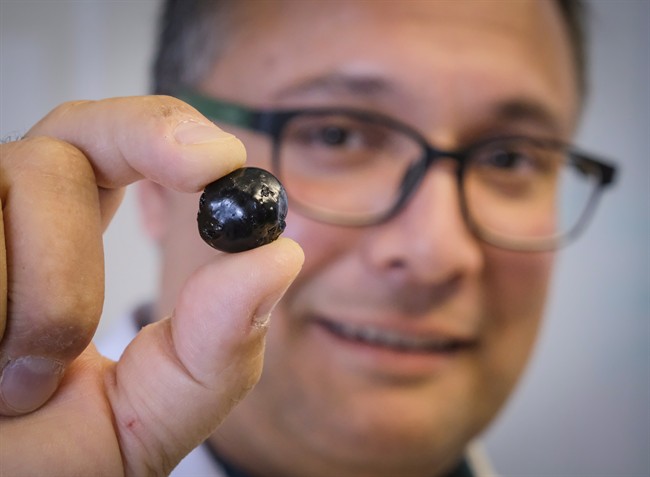A University of Calgary professor says new technology that transforms heavy crude from the oilsands into small pellets is the pill that could cure the industry’s transportation headaches.

Ian Gates says his newly-patented technique creates self-sealing balls of bitumen of various sizes that can then be moved by rail, road or ship with less risk of environmentally- harmful spills, thus reducing the need for new pipelines.
The invention will jump from the lab into a pilot project starting in November to prove whether it will work in the field.
LISTEN: Professor Gates joins Gord Gillies to talk about the new technology
Canadian National Railway unveiled a similar-sounding technology earlier this year, announcing it had filed a patent application for CanaPux, a process that turns bitumen into a semi-solid for transportation by mixing and coating it with polymer.
But Gates says his system is better because it can be implemented in the field without chemical additives or complex equipment. The resulting pellets can be refined or used in making asphalt by the end user just like regular bitumen.
- Gas prices surge in some parts of Canada. What’s causing pain at the pumps?
- Roll Up To Win? Tim Hortons says $55K boat win email was ‘human error’
- Ontario premier calls cost of gas ‘absolutely disgusting,’ raises price-gouging concerns
- More youth are seeking EI amid rising unemployment rates: StatCan
Opponents of new oilsands pipelines such as the Trans Mountain expansion through B.C. have argued that bitumen will be hard to clean up if it leaks into water because it sinks, but Gates says it is possible to inject an air bubble into his pellets to make them float.
He says he and his team at the Schulich School of Engineering discovered the technology accidentally.
“We were trying to upgrade bitumen and learned how to degrade it instead,” says Gates.
“We put it on the shelf for quite a while, because who would want bitumen pellets? It turns out there’s a huge market for this stuff.”



Comments